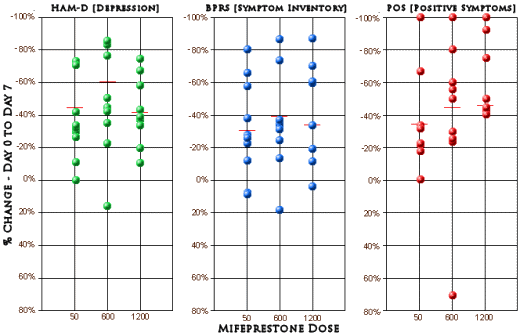 [AKA a rant]
[AKA a rant]
In the late 1960s, I was an Intern then Resident in Internal Medicine at a large Charity Hospital in the South – one of those places where it seemed like every patient was desperately ill [in the local parlance – "low sick"]. And the problem of being a young doctor was that nothing was "automatic" because every case was something new. By the time I got reasonably proficient at one level, I got bumped up a notch in the hierarchy. So at night I helped the people below me with what I’d learned the year before, and by day I saw cases at the next level of complexity [about which I knew very little]. During those years when there was hardly any experience to rely on, there were Sacred Texts – absolute references with dog-eared pages scattered by my bed at home, in on-call rooms, lounges, and libraries: Harrison’s Textbook of Medicine, Cecil and Loeb, Hurst and Logue’s "The Heart," etc.
In everyone’s pocket was a personal "ectopic brain" – a little notebook of notes and charts – the things you thought you’d never remember. Then there was that set of periodicals that came at varying intervals – The American Journal of Medicine, The Annals of Internal Medicine, The New England Journal, The Lancet, etc., and we all knew what was in each issue within days of arrival – particularly the review articles. Of course there were the ubiquitous PDRs [Physicians Desk Reference]. They were thinner then, with many fewer cover-your-ass disclaimers. And so it went: see the patient and take care of the immediate problems, do the write-up and the orders, then hit the books to fill in the gaps, get help from the people above who knew more. The best teacher I ever knew said, "You can never know all of medicine. The best you can do is to learn how to know when you don’t know something and then look it up" [thus, the Sacred Texts]. One was always left with questions and that informed the way you read all those Journals. And then one day, you knew something on your own – time to move on up a notch.
There were plenty of "sponsored" books and "throw-away" journals around. Some were great. CIBA’s books with F. Netter’s anatomical drawings still linger in my mind as the truth about the inside of the body. There were sponsored monographs from diuretic makers on Acid-Base balance [with charts that got taped into that "ectopic brain"] or EKG books from people who sold cardiac drugs. Such literature wasn’t sacred, but some of it was helpful. Most of it wasn’t and it and was treated accordingly.
In another Residency in Psychiatry in the mid-1970s, there was a different way of learning. There were lectures and lots of articles, but they came from reading lists, and some were pretty old – "classics." There were lots of conferences where a Staff Psychiatrist interviewed a patient or supervisions where we presented our own cases. It was more about single cases rather than single diseases. I spent a lot more time in the library reading books rather than reading this month’s journals. It seemed like we stayed on the trailing edge instead of jumping at new things like in Internal Medicine. It fit better with the way I naturally think and I liked it. I spent a decade in full time teaching, part-time to the present even into retirement. There were plenty of Sacred Texts along the way, but they weren’t all textbooks. They were "the classics."
Somewhere along the way, Psychiatry changed and became more like Internal Medicine., more leading edge. I can summarize how I see part of the change with a single term – "treatment-resistant depression." In modern lingo, it’s a "thing," an entity, a disease. It means that someone came in depressed and was started on antidepressants and didn’t get better – become undepressed. In today’s world, the question is what’s the next step – another antidepressant? an atypical antipsychotic? Cognitive Behavior Therapy? Vagal Nerve Stimulation? I’m expressing my own bias here, but that’s just not how I think. It feels like treating a symptom without looking for the cause, like giving a morphine shot to a person with abdominal pain without looking for Appendicitis or a thousand other things. I’d want to try to figure out why that patient was depressed. I’m sure willing to try medications and do that all the time if I think they might help, but I would do that after asking the person about their life, their relationships, their early years, their marriage or its absence, their medications, and a thousand other things. I don’t know how to talk about "treatment-resistant depression" as an entity. If someone reports ten cases, I wouldn’t see them as a group. I’d see them as ten unhappy people with a lot to figure out.
I’ll admit another shameful secret. I don’t own a DSM-IV Manual, and only generally know what’s in it. I learned the DSM III to pass my Boards, but it just doesn’t fit the way I think, so I kind of forgot about it. I’ve never read the Hamilton Depression scale or the Brief Psychiatric Rating Scale before I wrote that "series" this week. I’m not even sure I know what the MDD criteria are in the DSM-IV Manual. To me, Major Depressive Disorder is profound, show-stopping depression with physical symptoms that transcends any explanation and consumes the person’s life. Psychotic Depression is even worse because the person has crazy ideas too. But I do think of MDD and Psychotic Depression as disease entities and I’d read a paper about ten such patients and see them as a group [there are a lot less cases of these things in the world I’ve seen than in the world of the current literature]. So there you have it – the confessions of an old doctor who believes in evidence, but winces at the term "evidence based medicine" because I think it’s a trick to get me to write more prescriptions and not get to know the person in front of me [the same goes for the DSM IV/V].
Some people would see this attitude as a conflict of interest because I’m also a Psychoanalyst. They’d see me as being "hung up on that Freud thing." I doubt that because I came to my way of thinking long before I could spell either "Freud" or "Psychoanalysis". I came to it when I left that big Charity hospital and started having time to get to know the patients I saw as people rather than a collection of desperate diseases. To my surprise, it opened up a whole world and I wanted to know about it – one case at a time. Thus the second Residency. But I admit my view is a bias [and a self righteous bias at that]. Another bias – I don’t like the way Nemeroff and Schatzberg think. I have a lot of friends that are more biological than I, and they don’t think like those guys. They see the people they’re treating too, and their lives, and they think deeply about the underlying biology that might be involved or the way drugs might change things to relieve suffering when that’s the right thing to do. They’re one case at a time people too and they’re the ones I call when I need help. They call me too. They don’t tell me about exciting new things. They tell me what practical options I might not know about [and they aren’t so monotonous].
So back to the Sacred Texts. I resent that the psychiatric literature these days is so mono-dimensionally drug/biology oriented. But that’s not why I spend my good retirement time banging out things on this blog. It’s because I’m beyond furious to find out that the articles in those journals and the textbooks are regularly "sponsored" or at least biased, and that the sponsorship/bias has regularly been hidden. I’ve been around a long time, so most of the things I need from Sacred Texts have to do with biology and medications. Things I don’t know well. But I don’t [and shouldn’t] trust any of them anymore. It’s been that way for a very long time. So as put off as I am at the DSM IV way of looking at people, that’s a personal preference. But the deceit in the Sacred Texts that have been my medical/psychiatric lifeline for over 40 years is what really rattles my cage. I feel betrayed by my colleagues – the ones who have done that. The harder I look, the more of it I see. My Sacred Texts aren’t sacred because they came from the gods, they’re sacred because they’re honest and written with integrity. They shouldn’t try to tell me that the insignificant graph below means I should shut down some already very ill person’s cortisol metabolism with some new drug – particularly if the authors happen to own a piece of the company that makes it.

And I don’t think my Sacred Text should suggest that I get someone to cut open a depressed patient’s neck and clamp one of these zapper thingees onto their Vagus Nerve, when the author works for the manufacturer of the thingee and I’m not told about that.

Bravo !! Very well said. My experience and my attitude about the profession closely parallel yours. The Nemeroff/Schatzberg mentality is foreign to me — but it’s not just a way of thinking about psychiatry and patients — it’s basically a character issue that determines their values, I think.
well, I don’t think you’re a dinosaur. This metaphor blew me away: It feels like treating a symptom without looking for the cause, like giving a morphine shot to a person with abdominal pain without looking for Appendicitis or a thousand other things. Seems to me that’s exactly what is being done; here, take a pill….no need to figure out why you’re suffering.
I share your feelings of disappointment and betrayal regarding Psychiatry. I don’t like the way Nemeroff and friends think either. Unfortunately, their ill-advised recommendations have spread far and wide. What effect do you think the new federal drug development center will have on the quality of the research? See
http://www.nytimes.com/2011/01/23/health/policy/23drug.html
This is more ode than rant – I loved it. T.S. meets the “problem” of psychiatry in our own time.
Looking at the graphs again, it seems that if the “approaching” significance relationships among the means held AND you collected another 5/10 thousands of cases, the p <.05 threshold might be met. But one is still left with the more fundamental problem of what, if anything at all, such a “finding” means given the measures chosen and a deeply flawed research design. It adds up to a kind of “physics envy” writ large.
I wonder too, if the “Project for a a Scientific Psychology” that Freud laid out in 1895 persists (covertly); the idea that the architecture of the brain and increased understanding of its structures and machinations might indeed turn out to be the holy grail for psychology.
P.S. – I think I saw one of those zapper thingies a while back on a night of troubled sleep. According to the 3 am infomercial, you didn’t attach it to the vagus nerve, but rather to the genitalia. Moreover, if you ordered right then, the people would send you a second zapper thingie absolutely free!